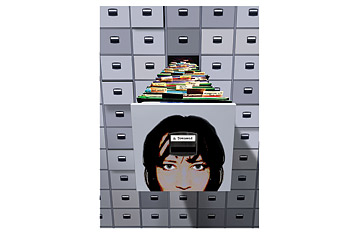
Facebook is rolling out the personal digital archive Timeline to replace its aging profiles
(3 of 4)
With more than 60 new timeline apps available right away, Facebook is positioning itself to become the online hub for social activity by aggregating the full range of an individual's digital experience in one spot. Already, 1 in every 7 minutes spent online and 3 in every 4 minutes spent on social sites are spent on Facebook, but as the social space grows, more networks are vying for that attention. Frictionless sharing embraces this competition and invites people to add their experiences on sites like Pinterest, Goodreads or Turntable.fm to their Timeline. Now you don't have to be on Facebook to use Facebook. All the while, the company gathers more information about you--information it's able to monetize because no one else has it.
To be successful online in the past decade, sites had to play Google's game. Publishers obsessed over keywords and search-friendly page names while Google's spiders crawled. The only shadow was the deep Web, a vast, anonymous alt-Internet, a haven for pedophiles and hacker types. If it was worth seeing, it was indexed by Google--at least until Zuckerberg gave us the power to provide for ourselves. Facebook is essentially a vault of Internet activity that Google can't read, and it's only getting bigger. In 2010, Facebook's Web consumption grew 69%, eating away, slowly but surely, at the searchable Internet.
The rise of Facebook was more than just a fundamental change in the way we used the Internet. It was a collision of Web cultures. A people-powered, social Web shifted curatorial control away from Google, something it's trying to reclaim with its own social network, Google+. For now, Google+ has done little to threaten Facebook's dominance, and the Facebook IPO will likely solidify its strength. But overhype is always a risk. Other hot Web companies like Groupon, Zynga, Pandora and Renren, the "Chinese Facebook," went public in the past year, raising billions of dollars but underperforming once in the market. "The social network is only as valuable as the engagement that's fostered within it," says Brian Solis, a principal analyst at the Altimeter Group, a digital-research-based advisory firm. "The network has to constantly reinvent itself so people feel compelled to come back, and more importantly, to share more about themselves than they had thought of or felt comfortable doing so in the past."
The Digital You
A new survey of Facebook users by security firm Sophos found that of the more than 4,000 users polled, 83% had negative feelings about the Timeline change. Facebook's earliest users enjoyed the freedom of sharing their college experience exclusively with other students; the social-media learning curve on the finer points of privacy didn't surface until the network widened and Mom showed up to spy on the digital game of beer pong. For many people, that content still exists; it's just buried under posts by Facebook You 2.0, the smarter sharer.
